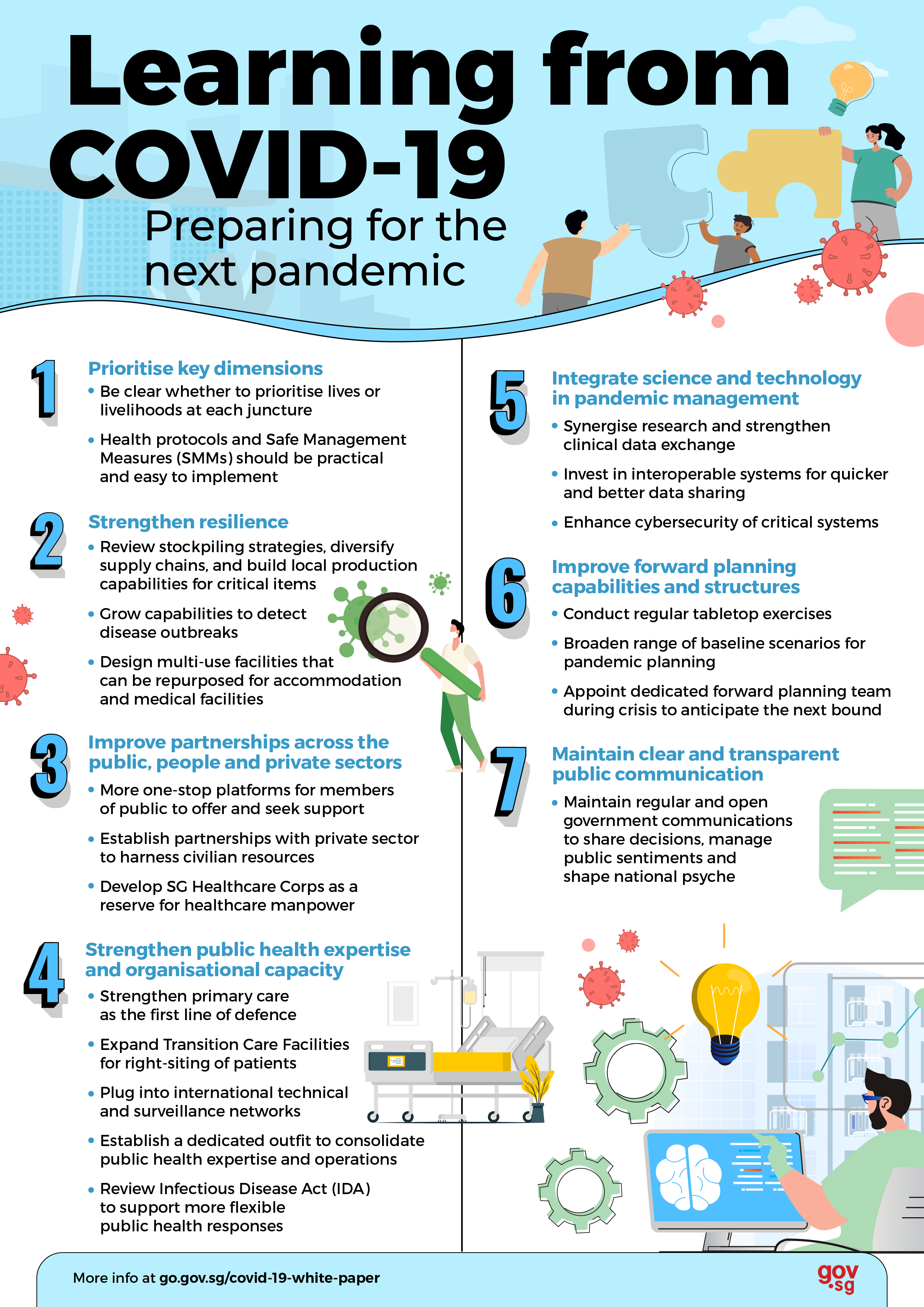During the pandemic, the Multi-Ministry Task Force in the fight against COVID-19 has mentioned repeatedly that they’d be coming out with a report of how Singapore has responded to COVID-19 so that we can learn from it when the next pandemic hit us.
Today, the “report book”, called the White Paper on Singapore’s Response to COVID-19, was released. This will be debated in Parliament later this month.
It’s a 92-page document that you probably won’t want to read in full (but if you want to, here’s the link), so here’s a summary of what is covered, simplified for you.
What Singapore Did Well
For a start, I think this is obvious: our national vaccination programme is such a success, it could become a case study for other countries. Other than securing early access to COVID-19 vaccines, we have vaccination centres and mobile teams islandwide set up faster than how an auntie rush for a seat in an MRT train. And on a personal note, I’m more than impressed with the efficiency; I mean, making it easy to get a vaccine would encourage us to be vaccinated, isn’t it?
The White Paper also added that we’ve done well in our healthcare system, with expanded healthcare capacity and more than enough swabbing and testing operations. We also managed to stay open and secured food and critical medical supplies (though the supply of toilet rolls might not apply here).
In addition, we managed to support livelihoods by providing loans to businesses, and lots of rebates. Also, there were facilitated job placements, so much so that now, our employment rate is even better than pre-COVID-19. There were also financial support for those in need and mental health support for those in distress.
One specific aspect the White Paper mentioned is how we kept education going during the pandemic by providing additional resources and support for teachers, parents and students through full home-based learning.
The last two positive points are how the Government and people work together: the Government provided accurate and timely information, while people have rallied the nation well.

So, what have we done wrong then?
What We Could Have Done Better
The first thing that comes to mind, and to the White Paper, is of course this: the massive outbreak in migrant worker dormitories. The authorities believe early ground surveillance could have been conducted, and there should have been more reliable data on migrant workers’ health and housing.
Interesting enough, they believe our border measures and mask-wearing policy weren’t up to par. Pretty sure Badge Lady would agree on that.
The gradual closure has allowed imported infections to slip through, and for masks, they believe during the early days, we should have been less definitive on mask wearing.
Also, contacting tracing was apparently not good enough initially: the TraceTogether adoption was deemed as “slow” at the beginning, and the use of technology should be integrated with operational plans (i.e. use technology fast).
Now, you’d agree with the next two points: Safe management measures were “overly calibrated and difficult to operationalise”. In other words, confusing lah. Also, the transition to endemic wasn’t ideal, since we were all ready to live with COVID-19 when the Delta waves suddenly struck, leading to new measures again.
So, what can we do for the next pandemic?
What to Expect for the Next Pandemic
The White Paper suggests that we should be clear whether to prioritise lives or livelihoods at each juncture, and have SMMs that are practical and easy to implement.
We should be prepared by having enough supply chains for critical items, and also build local production for them. Anyone remembers when masks cause more than a plate of chicken rice?
There are a few more lessons to learn, but they are mostly catered for authorities (so the next MTF will know what to do). You can view this image for more information:

So, what’s next?
Last I know, when a report book is out, it means we’ve graduated. While the Government is extending the COVID-19 laws for a year lest a new variant hit us, you can most probably keep your ART kits in your storeroom, and forget about using COVID-19 as an excuse to skip work.
Would you be jailed for being half-naked in public? Well, the answer will shock you. Seriously. Watch this to the end and you'll understand:




